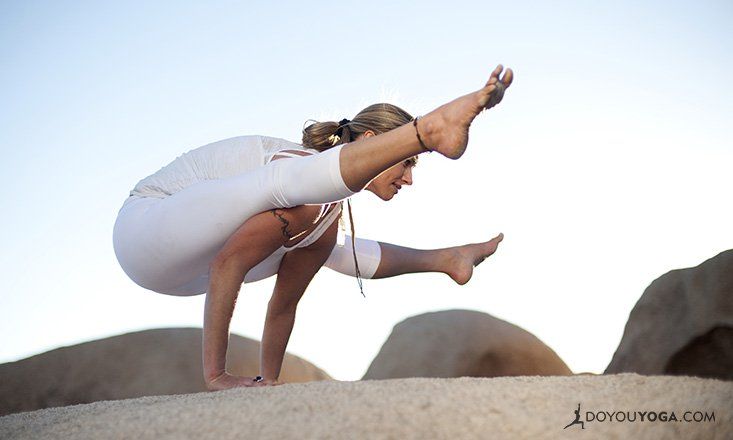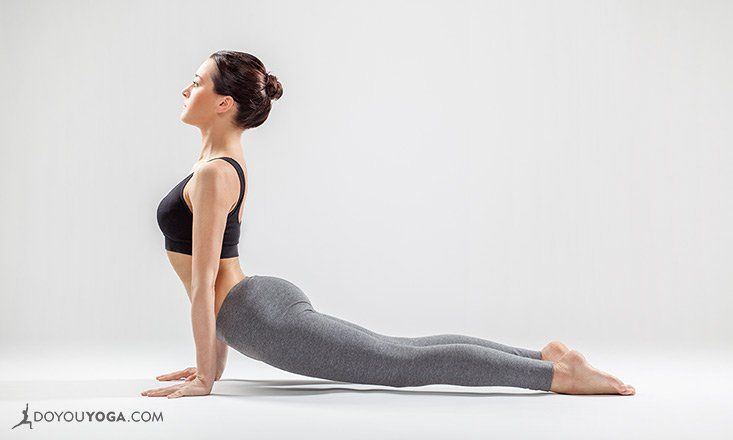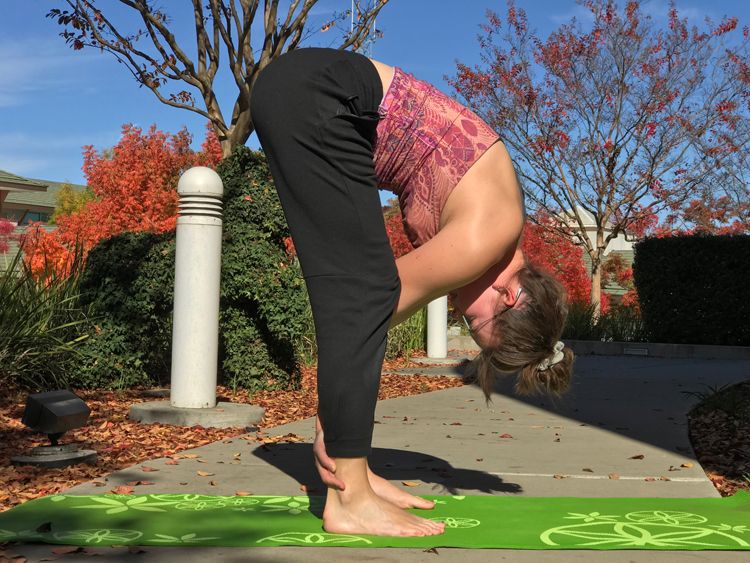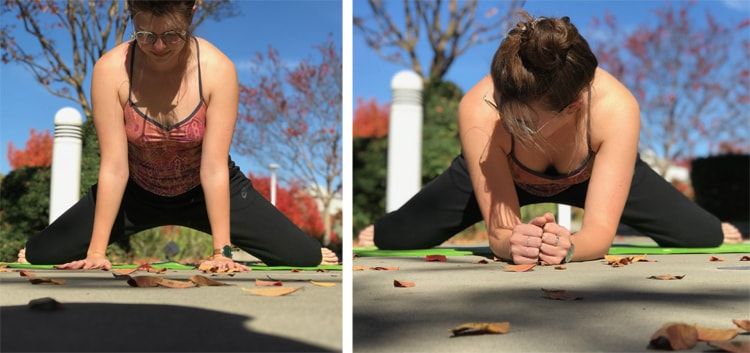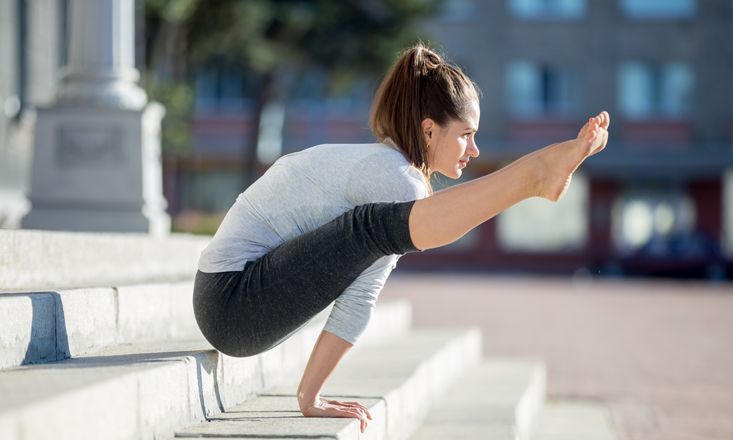Tittibhasana, also known as Insect or Firefly Pose, is a strength-building arm balance. This asana challenges hip and hamstring flexibility while opening the chest, grounding you in your upper body, and asking you to find balance on nothing but your hands.
It’s important to work up to this complex posture throughout a yoga class, incorporating movements that will prepare the body for the depth required in this pose. It’s also a great idea to incorporate these preparatory poses, alone or as a set, at the end of workouts as you work up to trying Firefly pose for the first time. Let’s get started!
1. Warm Up
This is key for any kind of pose that requires any deep stretching, especially in your pelvis. This pose in particular requires a lot of small muscle and tendon activation, as well as deep mental concentration.
Start your sequence with a centering and breathing focus, and then move into fast-paced asanas like Sun Salutations and vinyasa flows to warm up your large muscles, preparing for the deeper stretches we’ll move into next.
Include deep activation in Upward-Facing Dog to get used to opening the chest while pulling the shoulders down and away, as well as pulling open the front of the pelvis. Try holding Chaturanga for several breaths as well to engage the triceps, shoulders, and core.
2. Wake Up the Shoulders
Firefly requires you to pull strength into your shoulders while simultaneously keeping them relaxed and away from the ears, as well as trying to pull them open through the collarbone…all while your legs are on top of them! This means that we’ll need to really wake them up before we get started.
I recommend starting with several transitions between Downward Dog and Plank, and then moving into dynamic Dolphin. Start in Dolphin pose (pictured above) and then slowly glide your nose toward your thumbs, then back to starting position. This also starts to work your hamstrings more intensely, which is essential for success in Firefly pose.
3. Deepen the Flexibility in the Hamstrings
Getting into Firefly pose requires being able to fit your chest snugly between your thighs in a forward fold position. There are some great ways to increase your hamstring flexibility to make this possible—again only when the large muscles in your legs are warm from a preceding yoga sequence or some other physical activity.
Try Forward Fold with your forearms wrapped around the insides of your calves, or with your palms hugging opposite elbows around your hamstrings. In positions like this, try to envision your spine as a straight line—instead of trying to find straight legs in these positions by curving the spine, pull the tailbone up to the ceiling.
This requires you to tilt your entire pelvis—and therefore the straight line of your spine and the top of your head—toward the ground, finding the true flexibility of your hamstrings without stressing your lower back. Keep your heels in line with your hip sockets in positions like this, with your feet parallel to one another, to avoid any unwanted stress on the hip joint.
4. Open the Hips
Firefly requires rotation in the hip joint, as well lots of gluteal strength. One way to maintain the openness in the hips while working on the strength needed for this pose is to work deep hip openers into a class sequence, such as Frog pose.
In this position, keep your ankles directly behind your knees with your toes turned out at a 90-degree angle to your shins, and gently glide backward and forward with your upper body to find the place that’s most challenging for your flexibility—and then breathe there for a while.
Try and work toward bringing your chest all the way down to the ground in this pose, turning your head to place your ear on the ground, switching sides to even out the stretch in your neck.
5. Build Your Upper Body Strength
A great way to start working toward these kinds of arm balances is to tackle them in succession. You may want to start with Crow pose before Firefly, as this gets us used to balancing our whole body weight on the arms.
Another exercise to incorporate before flying into full Firefly is a shoulder press, with or without blocks. Place a block on the lowest height on either side of your mat (inside the edges, not outside the edges). Place your hand on the block and practice lifting your bottom off the mat using your upper body.
Keep your shoulders back and down, and start by keeping your heels on the mat, feet flexed with the whole leg straight and engaged. Then, slowly engage the core to lift one leg up and then maybe both. This is a great way to replicate the demand in the shoulders on a sliding scale for lots of levels.
Once you’ve built up your hamstring and hip flexibility, and your upper body strength, you’re ready to try firefly!
Start in a deep forward fold. Tilting from the pelvis and keeping the rest of the alignment cues from #3 in mind, take your stance a little wider than your hips and slowly move your shoulders as far as you can underneath your lower body, wiggling your shoulders and triceps behind your knees.
Slowly, and using the control and strength in your upper body, take the weight out of your feet and start to transition it into your hands, bending the elbows and knees gently as you take the tailbone toward the mat. When you’re ready, lift the toes off the mat!
If you need a more assisted option when starting out, place a block or two under your glutes to help support you here. Try spreading a blanket over your mat when trying this pose initially so you can fall softly.
Did you incorporate these exercises into your flow before trying Firefly, and did it help you get further? Let us know in the comments below, and happy flying!
